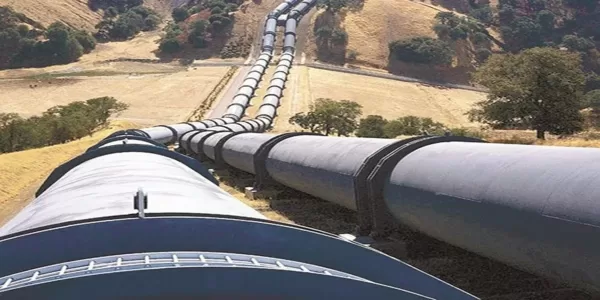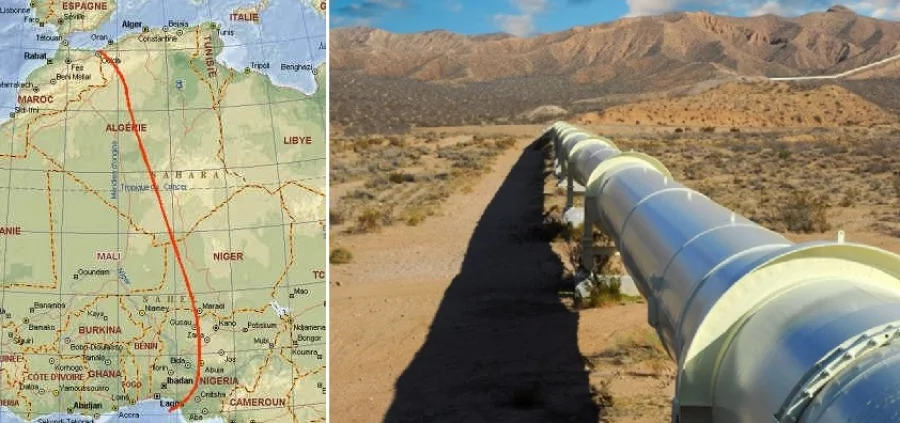The Nigeria-Morocco gas pipeline project has attracted the interest of the United States. Nigeria’s Finance Minister, Wale Edun, made the announcement after high-level negotiations during the 2025 Spring Meetings of the IMF and World Bank in Washington, D.C. According to him, the U.S. is seeking opportunities in Nigeria’s natural gas sector with particular interest in the ambitious gas pipeline project. The minister, along with Central Bank Governor Olayemi Cardoso, hosted U.S. State Department visitors who emphasized the importance of Nigeria’s ongoing economic reforms. The reforms are being considered necessary to build investor confidence. U.S. support for investments that align with Nigeria’s economic agenda is something Minister Edun indicated the U.S. is keen on providing. Additionally, he referred to the extensive natural gas reserves in the country as one of the largest attractions for foreign partners. Therefore, the project is becoming a strategic undertaking that can propel regional cooperation and long-term energy security.
Also read:
New MoU signed for the cross-border Nigeria-Morocco Gas Pipeline project
Project Factsheet:
Significance:
- Enhances energy security across West Africa and strengthens the Alliance of Sahel States.
- Enhances investor confidence because of economic reforms in Nigeria and international interest.
- Encourages regional cooperation through the shared infrastructure of 13 African countries.
- Positions Africa as a strategic energy supplier to Europe via cleaner natural gas exports.
Infrastructure:
- 5,660-kilometer offshore pipeline from Nigeria to Morocco across 13 countries.
- Will be the longest offshore gas pipeline in the world when completed.
- Construction of the project backed by ECOWAS, SMH of Tanzania, and Senegal’s Petrosen.
- Aims to boost gas supply to Europe and balance regional energy distribution.
Developer:
- Jointly developed by the Nigerian National Petroleum Company Limited (NNPCL) and Morocco’s ONHYM.
- Backed by regional economic and energy organizations across Africa.
- Began following bilateral agreements between Morocco and Nigeria in 2016.
- One of the most ambitious cross-border infrastructure projects in Africa.
Funding and Partnerships:
- Project estimated at $25 billion total cost.
- Financing anticipated via international and regional collaboration.
- Potential U.S. interest indicates possible further funding and technical participation.
- Agreements in 2022 to start construction works.
Challenges:
- Coordinating execution across 13 countries with varying regulatory frameworks.
- Overseeing scale, cost, and offshore construction complexity over several years.
- Maintaining environmental and technical standards along the whole route.
- Synchronizing infrastructure rollout with Europe’s future energy demand.
The Significance of the Nigeria-Morocco Gas Pipeline Project
The Nigeria-Morocco gas pipeline project is essential for regional energy integration and economic development. It will provide gas to thirteen West African countries before it arrives in Europe. This will improve energy access, reduce energy poverty, and improve cooperation in Africa. Besides, it aligns with global energy transition goals by promoting cleaner alternatives. The project measures 5,660 kilometers in length, the longest offshore gas pipeline globally. Furthermore, it would cross thirteen countries, from Morocco to Nigeria.

The 2022 agreements brought ECOWAS, Tanzania’s SMH, and Senegal’s Petrosen to join the project. There is to be a phased construction to meet technical and environmental needs. It will also boost gas supply to Europe and West Africa’s energy resilience when completed. Through improved gas supply, the project will improve industrial activity and regional stability. Its economic future encompasses not only exporting gas but jobs and infrastructure generation as well. With American attention, the initiative could receive broad international finance as well as technical assistance. Moreover, it is a benchmark towards collaborative energy goals between the West and African partners.
Also read:
Morocco-Nigeria Gas Pipeline Tenders to be Launched by Morocco in 2025

Leave a Reply